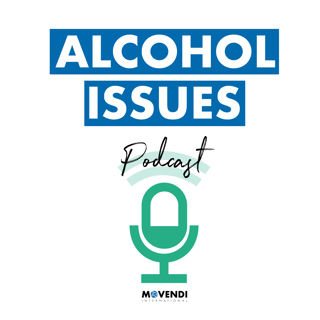
A Human Rights Based Approach to Alcohol Policy: the WHO Global Alcohol Action Plan and Beyond
Om avsnittet
A Human Rights Based Approach to Alcohol Policy: the WHO Global Alcohol Action Plan and Beyond The Alcohol Issues Podcast – Season 2 Episode 08 Lost opportunity or new momentum or both? In the end of May, the 75th World Health Assembly will discuss and adopt the WHO Global Alcohol Action Plan. It is meant to help accelerate action on alcohol policy development after a lost decade when no progress was made. But is the new action plan up to the task or is it a lost opportunity for accelerating action on alcohol as public health priority? In this show host Maik Dünnbier talks with Prof. Amandine Garde about the human rights law perspective on the global alcohol action plan. In their conversation, they discuss alcohol policy issues beyond the WHO Global Alcohol Action Plan to enhance the understanding of alcohol policy not only as public health priority but also as human rights priority – and the potential of such an approach. S2 E8 Topic: Improving the global alcohol policy response with a Human Rights based approach In this conversation, Amandine shares her analysis of the strengths and gaps of the draft WHO Global Alcohol Plan. Maik and Amandine discuss the potential of a human rights based approach to improving the global and regional alcohol policy response. They talk about alcohol issues, such as labelling, trade, taxation, and the harm caused by the products and practices of the alcohol industry – from a human rights law perspective. And they dive into why and how governments should act collectively to protect people from alcohol harm. The discussion goes into depth regarding the following questions: What does a Human Rights based perspective of the WHO Global Alcohol Action Plan find? What is a rights-based approach to alcohol policy development and what is its potential? What can countries do collectively to advance alcohol policy development, regarding the many cross-border alcohol issues, such as taxation, marketing, labeling, the emergence of online trade and on-demand delivery? What is the potential of a global binding instrument for alcohol control? The guest Amandine Garde is a Professor of Law at the University of Liverpool. She has developed a specific research expertise on the role of law in the prevention of non-communicable diseases and is Founding Director of the Law & NCD Research Unit, which regularly advises international organisations, NGOs, public health agencies and governments worldwide. Follow Amandine on Twitter: @AmandineGarde Resources for the episode 140+ scientific articles about alcohol harm and human rights, from Movendi International’s Science Digest. 700+ news stories about alcohol policy development and human rights, from Movendi International’s News Center. The UNICEF report, April 2018: “A CHILD RIGHTS-BASED APPROACH TO FOOD MARKETING: A GUIDE FOR POLICY MAKERS“ Prof. Garde’s publications on NCDs (including alcohol) and human rights, relevant recent studies: On the rocks? A few sobering thoughts on the growing EU alcohol problem Garde, A., & Bartlett, O. (2017). On the rocks? A few sobering thoughts on the growing EU alcohol problem. In T. Hervey, C. Young, & L. Bishop (Eds.), Research Handbook on EU Health Law and Policy. Cheltenham, UK: Edward Elgar. doi:10.4337/9781785364723.00029 DOI: 10.4337/9781785364723.00029 Regulating Lifestyle Risks: The EU, Tobacco, Alcohol and Unhealthy Diets (Book) Alemanno, A., & Garde, A. (Eds.) (2015). Regulating Lifestyle Risks: The EU, Tobacco, Alcohol and Unhealthy Diets. Cambridge: Cambridge University Press. doi:10.1017/CBO9781107478114 DOI: 10.1017/CBO9781107478114 Combatting obesogenic commercial practices through the implementation of the best interests of the child principle(Chapter) Garde, A., Byrne, S., & Byrne, S. (2020). Combatting obesogenic commercial practices through the implementation of the best interests of the child principle. In Ending Childhood Obesity – A Challenge at the Crossroads of International Economic and Human Rights Law (pp. 251-281). Edward Elgar. Digital food marketing to children: Exploitation, surveillance and rights violations (Journal article) Tatlow-Golden, M., & Garde, A. (2020). Digital food marketing to children: Exploitation, surveillance and rights violations. Global Food Security. doi:10.1016/j.gfs.2020.100423 DOI: 10.1016/j.gfs.2020.100423 Harmful Commercial Marketing and Children’s Rights: For a Better Use of EU Powers (Journal article) GARDE, A. (2020). Harmful Commercial Marketing and Children’s Rights: For a Better Use of EU Powers. European Journal of Risk Regulation, 11(4), 841-850. doi:10.1017/err.2020.83 DOI: 10.1017/err.2020.83 International Investment Law and Non-Communicable Diseases Prevention (Journal article) Garde, A., & Zrilic, J. (2020). International Investment Law and Non-Communicable Diseases Prevention. The Journal of World Investment & Trade, 21(5), 649-673. doi:10.1163/22119000-12340190 DOI: 10.1163/22119000-12340190 Feedback Your feedback, questions, and suggestions for future topics and guests is most welcome. Please get in touch at: maik.duennbier@movendi.ngo. You are most welcome to follow Movendi International and Maik Dünnbier on Twitter, too.